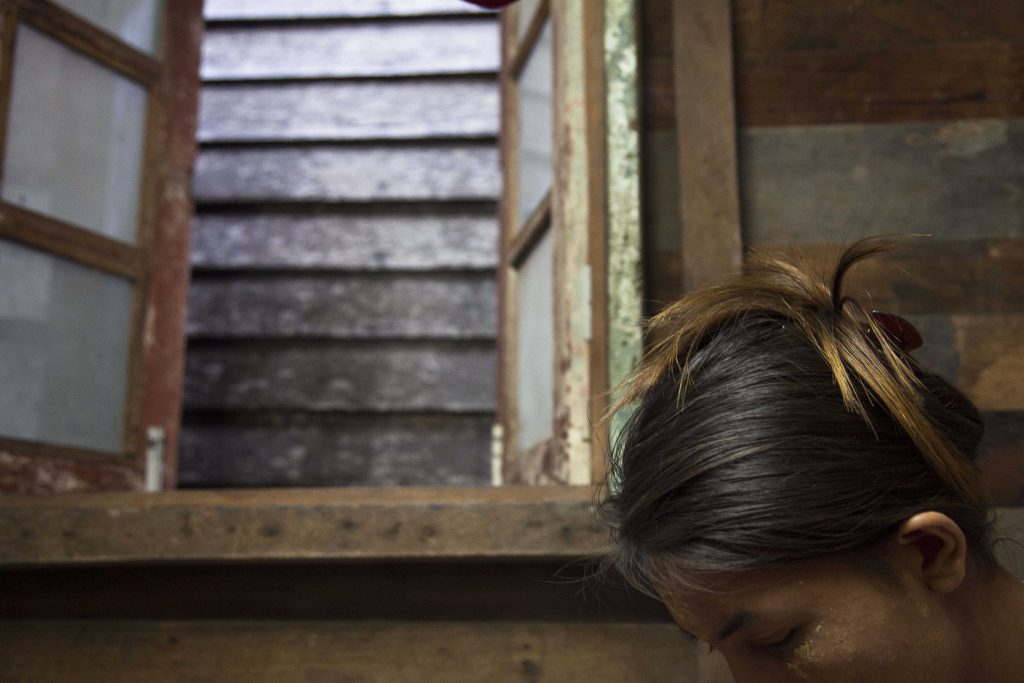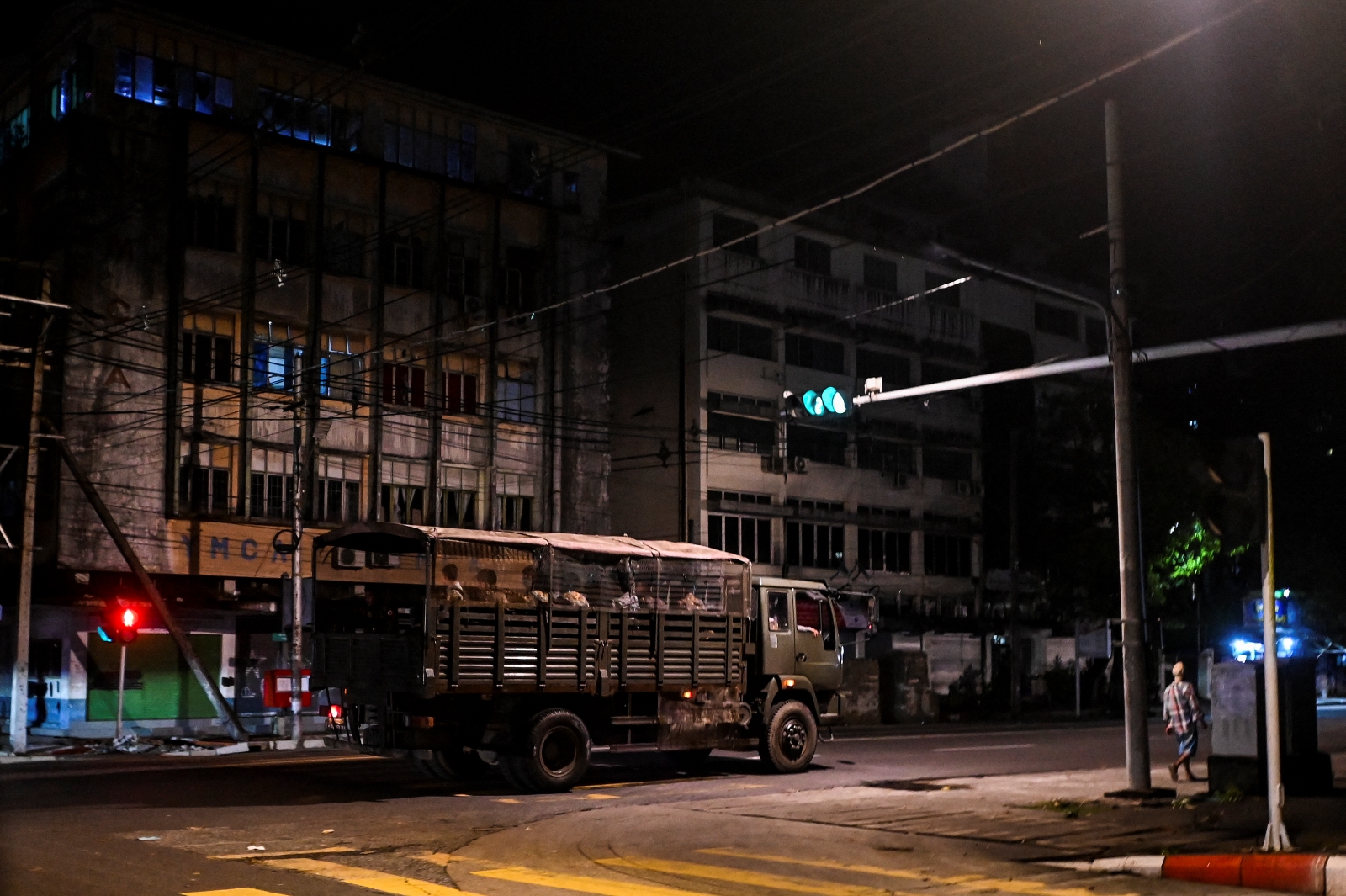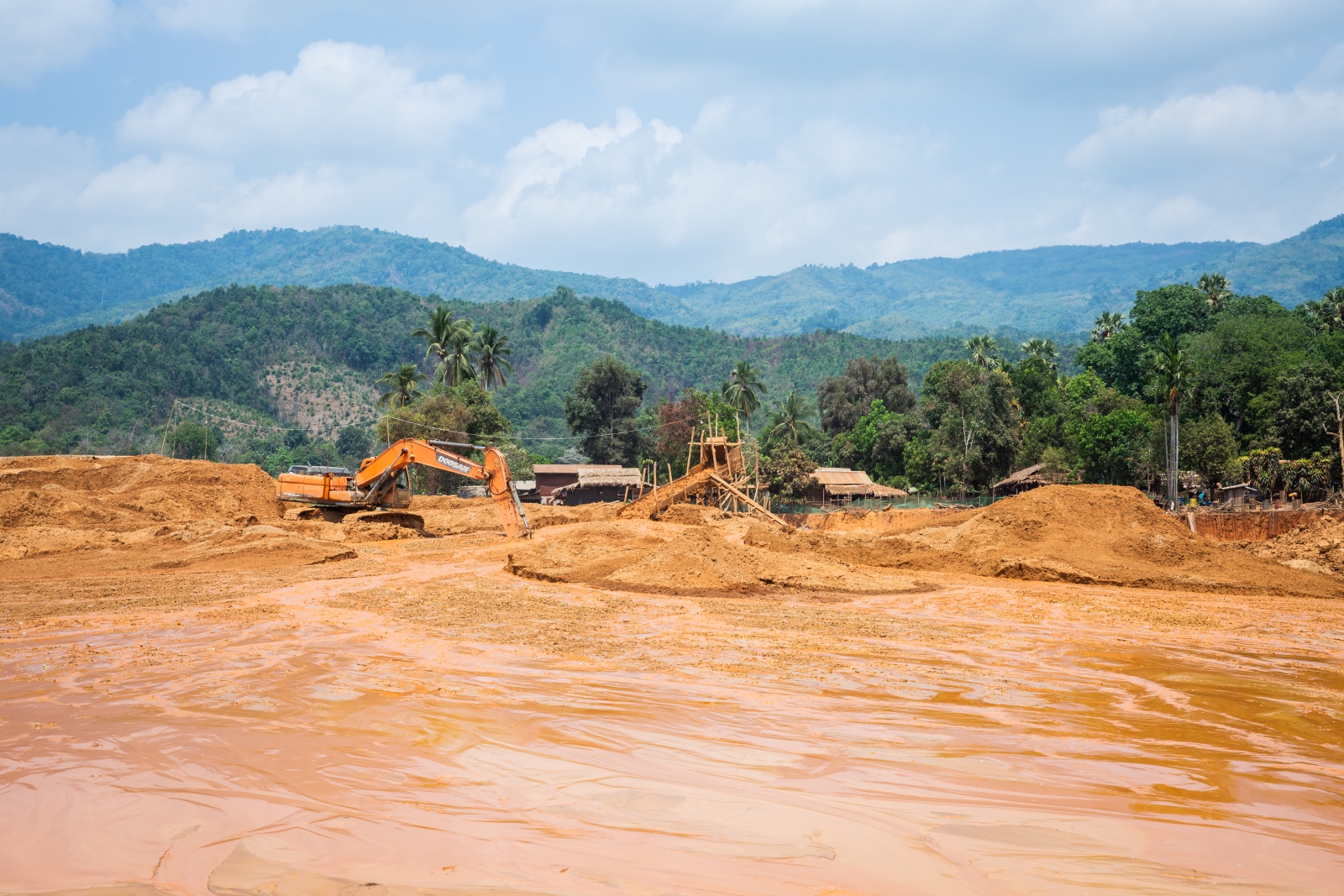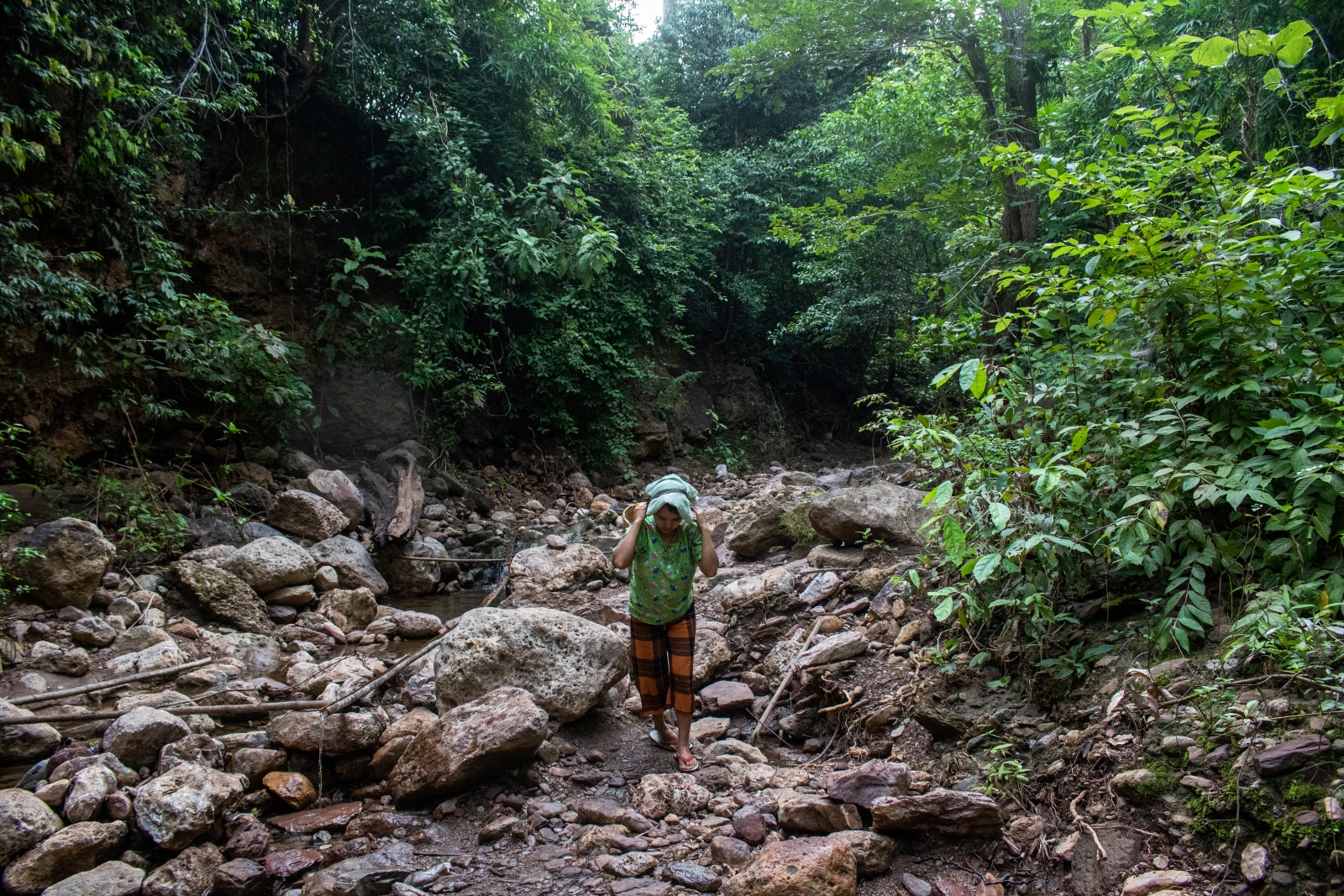For one young woman, a train ride in Mon State in 2004 was the beginning of a 13-year ordeal as a human trafficking victim who was sold twice to lonely men in China.
By THI KHA | FRONTIER
FOR Ma Kyi Kyi*, the journey to a miserable existence as the bought wife of two Chinese men began 13 years ago on a train in Mon State when she was just 17.
An ethnic Mon from a village in Mudon Township, Kyi Kyi was returning home from visiting her grandmother at Ye in southern Mon State when she was befriended by a Myanmar couple who apparently plied her with a spiked drink and she lost consciousness.
There were emotional scenes when Kyi Kyi – four months pregnant – returned to her village in April and was reunited with her parents. They thought she had died, said Nai Ko Thu, a member of the 88 Generation Peace and Open Society group, who played a key role in her escape from China.
The couple who accosted Kyi Kyi were agents for traffickers. After the train arrived in Yangon they found work for the teenager in a restaurant for three months, before eventually taking her to the border with China where she was sold to a trafficking gang.
The gang had no trouble finding a willing buyer for a teenaged woman. China’s one-child policy, its ready availability of abortions and a preference for male heirs gave it a gender ratio at birth of nearly 116 boys for every 100 girls in 2014, state media has reported.
Kyi Kyi gave her first Chinese husband a daughter and a son. After 12 years as her husband’s reluctant wife, she asked for permission to return to Myanmar via the Chinese border town of Ruili to visit her parents.
“At first he disagreed, saying he could never trust the Burmese who lived on the Chinese side of the border,” she said.
Eventually, he relented. When Kyi Kyi left her first Chinese home, her son was one year old and beginning to speak.
Kyi Kyi travelled to Ruili with a woman who had promised to help her cross the border. But when they arrived in the bustling border town, she was locked in a guesthouse for two days. When she emerged, she learned that traffickers had sold her to an elderly Chinese man for CNY60,000, or about K11.9 million.
After 12 years in China, Kyi Kyi could speak Chinese. When she asked the old man why he was taking her away, he replied that she had been sold.
“But if you pay me 60,000 yuan I will let you go,” he told Kyi Kyi.
Trafficked for a second time, the old man took her to live with him in a rural area where the dialect was different to that spoken by her first buyer.
Kyi Kyi wanted to escape but her efforts were initially thwarted by the area’s remote location and by not having a mobile phone. She settled into the routine of a peasant’s wife.
“I cleaned the house and fed the cows and goats. When they slaughtered a goat, I put its head in boiling water to make it easier to remove the hair,” she said.
Kyi Kyi’s elderly husband never allowed her to use his phone, but she had a plan. She was stealing small amounts of money from him and saving it to buy a mobile phone and a SIM card. “I only stole one or two yuan at a time because I did not want him to notice,” she said.
After seven months of saving she was able to buy a mobile phone without the old man’s knowledge. Then she faced a new challenge. She did not know how to use the popular Chinese messaging service WeChat. But she did watch television and it was on TV that she fortuitously saw a program about how to use WeChat.
“I used my phone number to try and open a WeChat account and it worked. I was so delighted,” she said.
When her husband left the home each day to work, Kyi Kyi would retreat to her room and try to contact people who might be able to help her return to her homeland. One of her WeChat contacts used a Myanmar name, Ba Ba Gyi, and when she told him of her plight he offered to help her escape.
Ba Ba Gyi put Kyi Kyi in touch with Ko Thu and plans for a rescue mission began.
Ko Thu asked for Kyi Kyi’s address and also for photos of where she lived and passed the information to police in Muse, the busy Myanmar border town opposite Ruili, as well as to police in China. After no action was taken, he suggested to Kyi Kyi that she turn herself in to police in Ruili. This was how she came to be arrested in China and deported to Myanmar in early April.
A new life
After being reunited with her family, Kyi Kyi began looking for a job. As she could speak Chinese well, she hoped to find work as an interpreter but there was little demand for such a skill in her township in Mon State. She also aspired to run a small business, but did not have enough capital to get it off the ground.
Members of the anti-human trafficking police in Mudon and Nay Pyi Taw had promised to help her start a new life, Ko Thu said; they offered to assist her open a mobile store or rear livestock at her house. So far, though, she has not received any help from the police, he said.
The Ministry of Social Welfare, Relief and Resettlement is providing Kyi Kyi with a daily allowance of K2,500 until November and is also providing healthcare support.
Ko Thu worries about the future for Kyi Kyi and her next child. The government should be providing more assistance to help women like Kyi Kyi rebuild their lives, he said.
* Not her real name. TOP PHOTO: Theint Mon Soe aka J | Frontier







